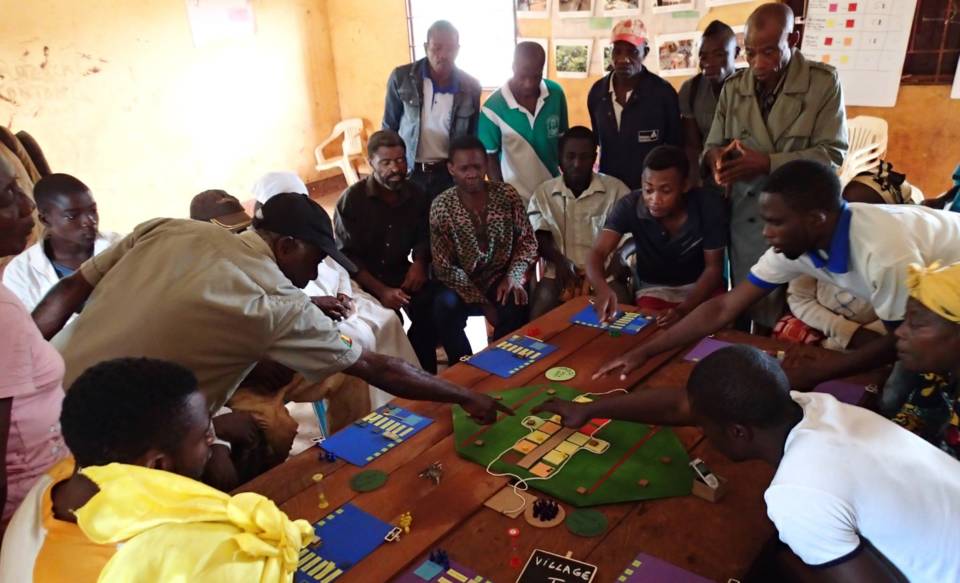The Biodev2030 project seeks to mainstream biodiversity conservation and development through voluntary commitments in key sectors emerging from multi-stakeholder dialogues in 16 pilot countries. One of the main challenges is to get insights in stakeholders interest to come to joint solutions. How to support stakeholders that are not informed, do not believe, do not care, or do not have the means to enact change?
Biodev2030 requested Julien Chupin and LEAF to organise a workshop to engage its key partners with a demonstration run of MineSet, a game coupling ecological and social drivers of change in tropical forest landscapes, during the IUCN World Conservation Congress in Marseille in September 2021. Its title was “capacity building workshop to engage stakeholders”.
The report presents the session, the take home message, the bottlenecks to address for the efficient implementation of the Biodev2030 project and potential next steps. We also address some of the most frequent questions participants ask when they first discover this approach.
Cette crise sanitaire confirme la pertinence de prendre soin des plus faibles et de régénérer la biodiversité pour assurer la performance des filières. A court terme, pour relancer et sécuriser l’approvisionnement des matières premières, l’urgence est d’accompagner les acteurs les plus fragiles en amont. Compte tenu du contexte particulier et de mon expérience à collaborer avec les petits producteurs, j’offre mes compétences aux entreprises qui souhaitent activer leur responsabilité sur ces sujets. Je le fais par solidarité, en dehors d’une logique commerciale.
Si vous avez dans votre réseau des contacts qui pourraient être intéressés, n’hésitez pas leur transmettre cette information.

The project focus on identifying opportunities to valorize the economic potential of genetic resources and associated traditional knowledge in the six countries, with a view to identifying universal lessons that could also be applied in other places
The project has four main components:
- Review patent activities involving genetic resources and traditional knowledge from six selected African countries;
- Analyse the valorisation potential of genetic resources in the countries;
- Provide an insight into ABS relevant industrial sectors, their R&D needs, requirements and opportunities; and
- Suggest conclusions and recommendations in a synthesis.
Can the Nagoya Protocol on ABS become a lever for financing biodiversity conservation?
The Nagoya Protocol set out the framework for States holding genetic resources and associated traditional knowledge to get a share in the benefits derived by users. This can be summed up in one acronym: ABS, for “Access and Benefit Sharing”. The new mechanism, which is the result of decades of international debate, can open up real opportunities for the development of territories and the preservation of their biodiversity, for the benefit of their inhabitants. For France, both producer and user of genetic resources, characterized by the richness of its natural resources, particularly in the foreign territories, ABS appears as an opportunity. But while the principle is clear, the application is far from obvious.
The issue of valorisation is complix. Indeed, it requires the actors concerned to put in place a strategy for the supply of genetic resources that meets the expectations of a market. Thus, a “business” approach, including market studies, research and development, organization of supply, investments, communication, etc., without which the most beautiful genetic resources would simply not find customers.
What are the opportunities for the french foreign territories? How to grasp them?
Find the publication, in french, here.


